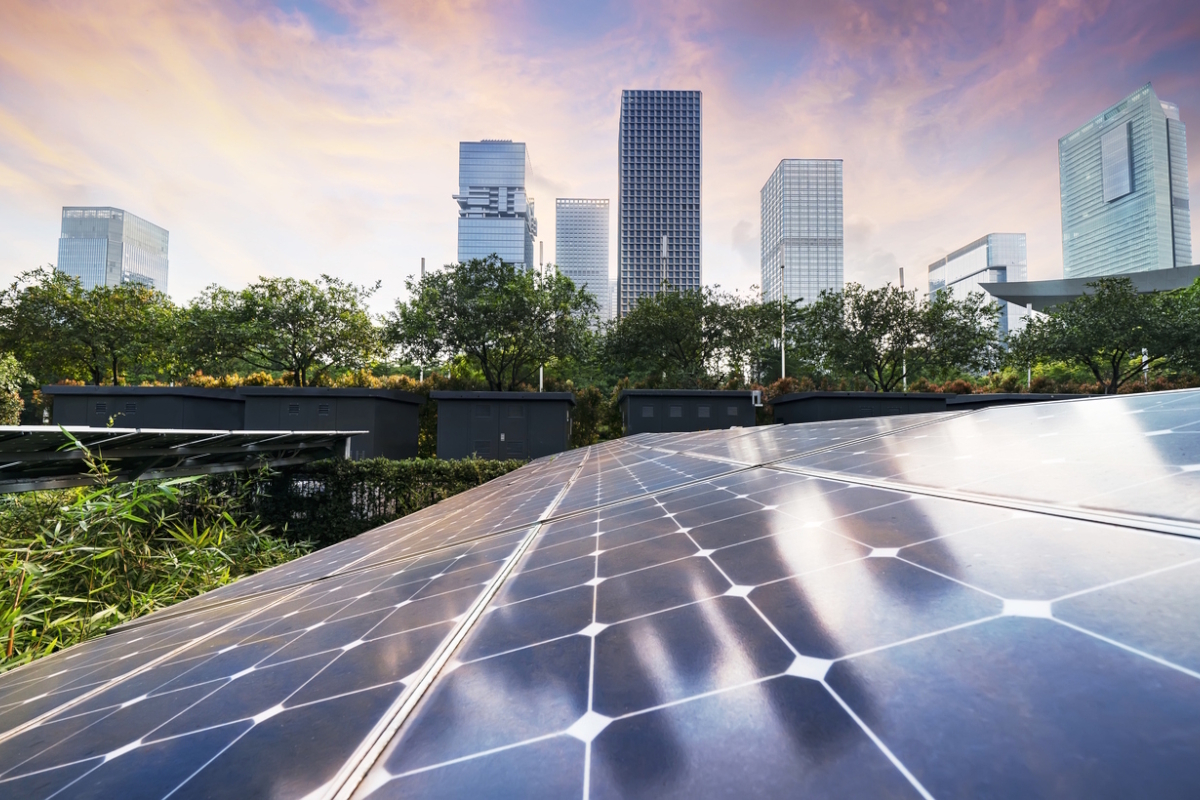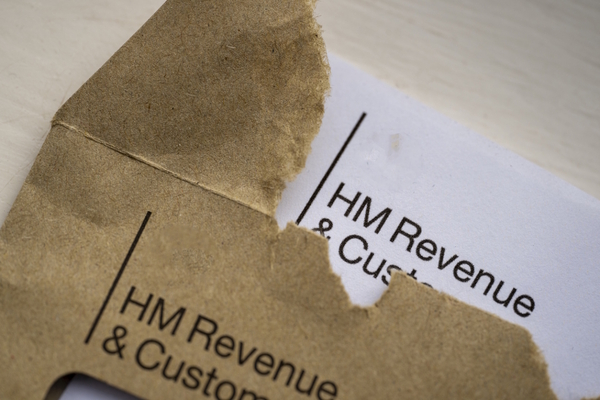Energy: a new era of efficiency

Frederic Godemel at Schneider Electric describes how digitalisation and electrification are transforming energy usage
Too often, energy efficiency is misunderstood as a sacrifice. It can be wrongly connected with perceptions about ‘cutting back’ or ‘settling for less’. In reality, growing energy demand means that it’s often the opposite – it’s about unlocking more from what we have. Maximising efficiency offers the potential to enhance speed, comfort and control.
As energy demand surges, it also causes energy costs to fluctuate and climate challenges to intensify. This means the value of efficiency has never been greater. Today, it’s not just about streamlining operational performance; it’s about enabling smarter, faster, and more resilient ways of working. Efficiency is now a driver of competitiveness, sustainability, and—perhaps most importantly—empowering us with greater command over our energy use.
Energy efficiency can no longer be viewed as merely a side benefit, but as the foundation for smarter growth. It should be seen as a powerful industry in its own right and a crucial thread that runs through the success of other sectors. It’s what enables buildings, industries, and entire cities to function more intelligently and more sustainably for a better quality of life.
Efficiency today is dynamic, digital, and deeply human. And unlocking it is one of the most powerful things we can do to accelerate the transition to a low-carbon future while strengthening the systems we rely on every day. Businesses must evolve their mindset and see efficiency not just as a vehicle for cost savings, but as a fundamental driver of operations.
Redefining efficiency
The traditional definition of efficiency—squeezing more value from fewer resources—remains relevant. But it’s also not enough. It’s about doing better: smarter operations, stronger margins, sharper control. It can also be the fastest and most cost-effective path to decarbonisation. In fact, its importance in hitting our net-zero goals has seen the IEA declare energy efficiency the “first fuel” of clean energy transitions.
In advanced economies, the bulk of efficiency savings are found through upgrading older infrastructure with new, more efficient solutions, things we’ve all heard of, like switching to LEDs. However, more significant changes can and should be made to promote efficiency, from improving building efficiency to replacing HVAC systems. The IEA projected in 2021 that improving energy efficiency could deliver a reduction in annual energy-related emissions of 3.5 Gt CO2-eq (12%) compared with 2017 levels, delivering more than 40% of the abatement required to be in line with the Paris Agreement.
The climate impact of efficiency is significant, but the wider impact on your organisation is why it should be on your radar.
Driving efficiency with digitalisation and electrification
As part of our decarbonisation journey, efficiency might be the first fuel; but it’s the combination of electrification and digitalisation, or what we call Electricity 4.0, that is supercharging its potential. Alone, each makes an impact. When combined, they are transformative, redefining efficiency across industries, cities and households.
Electrification replaces fossil-fuel-based systems with electric alternatives—we’re seeing lots of examples of this in our day-to-day lives with things like heat pumps, EVs or even induction hobs. But these changes can also be at an industrial scale, with changes to process heating in energy-intensive applications.
These technologies are inherently more efficient and, when powered by renewables, dramatically reduce emissions. While a powerful part of decarbonisation, electrification’s impact is magnified with digital solutions. For example, ArcelorMittal, a major steel manufacturer, upgraded its Belval facility with digital sensors and software to monitor energy use and critical equipment 24/7. This led to a reduction of 170 metric tons of CO₂ emissions and a 20% decrease in capital costs
The digital revolution has transformed the way we understand and manage energy. Smart sensors, connected devices, and advanced analytics provide unprecedented visibility into how, when, and where energy is used. This data-driven approach enables organisations to identify inefficiencies and remedy them.
Beyond this, digital tools can manage electricity demand and balance loads dynamically. This allows energy users to be more in control and actively manage demand when renewable generation is highest. This is something traditional systems cannot manage.
Take your home, for example. If you install energy management, such as smart thermostats, you save energy (and reduce energy bills) by applying energy exactly where you need it. As a result, not only do you save costs and carbon, you also get precise control and comfort, having rooms at the exact temperature you want (vs just cold, warm or hot).
These systems can even be enhanced with AI, incorporating weather forecasting to know that tomorrow will be warmer than today, so the boiler can start a bit later to reach your desired temperatures (saving even more energy and cost).
Gaining a competitive edge
What was once viewed purely as a cost-saving tactic is now becoming a stepping stone for organisations striving to become more competitive, and we’ve shown some of the ways you can increase efficiency and move to a more electric and digital approach. Energy efficiency no longer deserves to be relegated to an afterthought or a box-ticking exercise. It belongs in boardroom strategies—driving profitability, resilience and brand strength.
Businesses that use less energy are less exposed to price volatility and fossil fuel supply chain disruptions. And with smart, electrified systems, they can even participate in new energy markets—and even move into the prosumer space, becoming both consumers and producers of energy. This shift helps to future-proof key elements of an organisation’s cash flow and operations.
However, the value of energy efficiency transcends the bottom line. Energy-efficient operations are increasingly a signal of innovation and responsibility, resonating with customers, investors and regulators. It’s no surprise, then, that in their 2024 Investor Letter, BlackRock said companies that show a clear commitment to sustainability and efficiency are more likely to attract long-term capital.
A prime example of where efficiency gains have had a wider positive impact is seen with Deloitte’s office building in Amsterdam, The Edge. It now produces 102% of its energy requirements, as part of its claim to be the most sustainable office building on earth.
But beyond the cost savings from energy bills, it’s made Deloitte more attractive to young talent. In a competitive industry like consulting, where people are such a large part of success, hiring decisions can be crucial for growth. This helps to show that efficiency doesn’t just result in cost savings but can increase business appeal. In the new energy economy, efficiency isn’t a nice-to-have, but a key differentiator to competitors.
The true value of resiliency
Investing in efficiency is more than a commitment to long-term savings. It’s a strategic move that unlocks multiple advantages. Upgrading to modern digital tools doesn’t just trim energy bills; it paves the way for reduced maintenance, improved reliability, and a host of operational benefits that often go overlooked.
In today’s business landscape, measuring efficiency solely in terms of kilowatt-hours or dollars saved misses the bigger picture. The real value lies in the opportunities that efficiency creates: freeing up resources for employee training, accelerating research and development, or fueling international growth. It’s about reclaiming time through streamlined maintenance and boosting productivity by fostering a more productive and engaged workforce.
Efficiency, as we once defined it, has changed. Its true impact now extends far beyond cost reduction, as it now serves as a catalyst for innovation, resilience, and sustainable growth.
Frederic Godemel is EVP Energy Management at Schneider Electric
Main image courtesy of iStockPhoto.com and kynny

Business Reporter Team
You may also like
Most Viewed
Winston House, 3rd Floor, Units 306-309, 2-4 Dollis Park, London, N3 1HF
23-29 Hendon Lane, London, N3 1RT
020 8349 4363
© 2025, Lyonsdown Limited. Business Reporter® is a registered trademark of Lyonsdown Ltd. VAT registration number: 830519543





